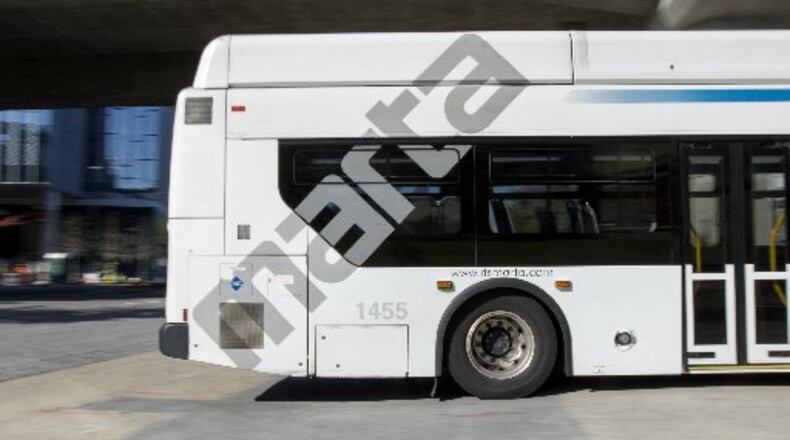Voters in the city of Atlanta on Tuesday approved raising the sales tax to expand MARTA and pay for other transportation improvements.
Atlanta residents overwhelmingly supported both a half-penny increase for MARTA and a four-tenths of a penny hike for transportation improvements.
Meanwhile in Fulton County, with 90 percent of the precincts reporting early Wednesday, residents were narrowly approving a referendum to increase sales tax by three quarters of a penny in unincorporated Fulton and all its cities except Atlanta. The money will be used for roads, bridges, sidewalks and other improvements.
“I was torn because that’s a lot of money, but I’ve seen these roads,” Alpharetta voter Nikki Roberts said of the Fulton measure.“I kind of felt obligated to vote for it.”
Supporters of the referendums said they were critical to keep up with the area’s explosive growth, especially after the sound defeat of a regional tax increase to address metro Atlanta’s transportation woes four years ago.
Metro residents cited traffic as their No. 1 concern for the third year in a row in an Atlanta Regional Commission survey.
Atlanta Mayor Kasim Reed has said improving transportation will help attract business. After years of preferring to locate in the suburbs, companies such as NCR Corp., Worldpay and GE Digital are moving to Atlanta to attract the next generation of workers — namely millennials — who prefer public transportation and biking to long commutes to work by car.
“It’s the biggest expansion of MARTA in the city’s history,” Reed said late Tuesday, anticipating approval of the referendums. “I want to thank the people of Atlanta.”
Voting at Morningside Baptist Church on Tuesday morning, Chris Coad, 37, of Atlanta, said he supported the tax increases in the city. As a regular MARTA rider, he sees expanding the bus and subway system and improving transportation in the Atlanta as a long-term investment.
“If we are going to be a world-class city, we have to find ways to move people around the city,” he said.
One of the taxes voted on by Atlanta residents will raise $2.5 billion for MARTA to add more buses, light rail and infill stations. The other will add more than $300 million to city coffers to synchronize traffic signals, fix roads, add bike lanes and pay for other projects. Atlanta’s sales tax is currently 8 percent.
In addition, $66 million will be dedicated to buying the remaining right-of-way to complete the popular Atlanta Beltline.
The success of the city referendums should come as a relief to some officials, who worried that the presidential campaign would make it difficult to draw attention to the measures.
“We are thrilled about this new chapter in MARTA’s and Atlanta’s history,” said Robbie Ashe, chairman of MARTA’s board of directors. “We will provide mobility options that will impact how Atlanta lives, works and plays for generations to come.”
Fulton’s measure would raise up to $655 million over five years. The county and its cities spent more than a year hashing out the details of the plan. Each city and the unincorporated area formed their own lists of transportation improvements that would be funded by the tax increase.
Fulton County Chairman John Eaves said before the vote that he felt “very, very positive” about the referendum. Late Tuesday, Eaves said he anticipated a victory. The tax, he said, would help improve transportation in the region.
“It’s truly a non-partisan issue,” Eaves said. “It’s local. The projects are in people’s backyards.”
That could have been the difference in this election. Four years ago, the metro Atlanta region rejected a proposed transportation tax, in part because the projects didn’t seem to have much local impact.
Eric Glick, who lives in Roswell, said it made a difference to him that communities were given a say.
“I feel it’s a good thing, especially with local communities having input,” he said.
In voting against the tax in Fulton County, some voters questioned the expense and how it would affect residents.
Many residents, though, agreed it was past time to address transportation issues.
“It’s important that we start to address transportation and traffic issues in North Fulton county, Roswell resident Carmen Beggs said. “Somebody has to do something. It’s important enough that I’m willing to pay for it.”
— Staff writer Craig Schneider contributed to this story.
About the Author
Keep Reading
The Latest
Featured




